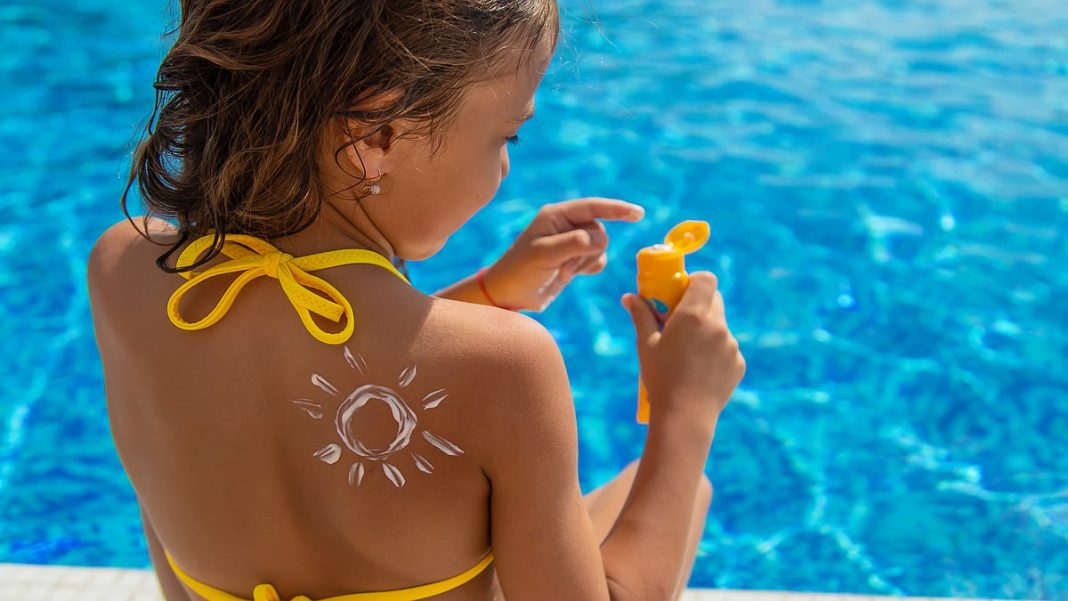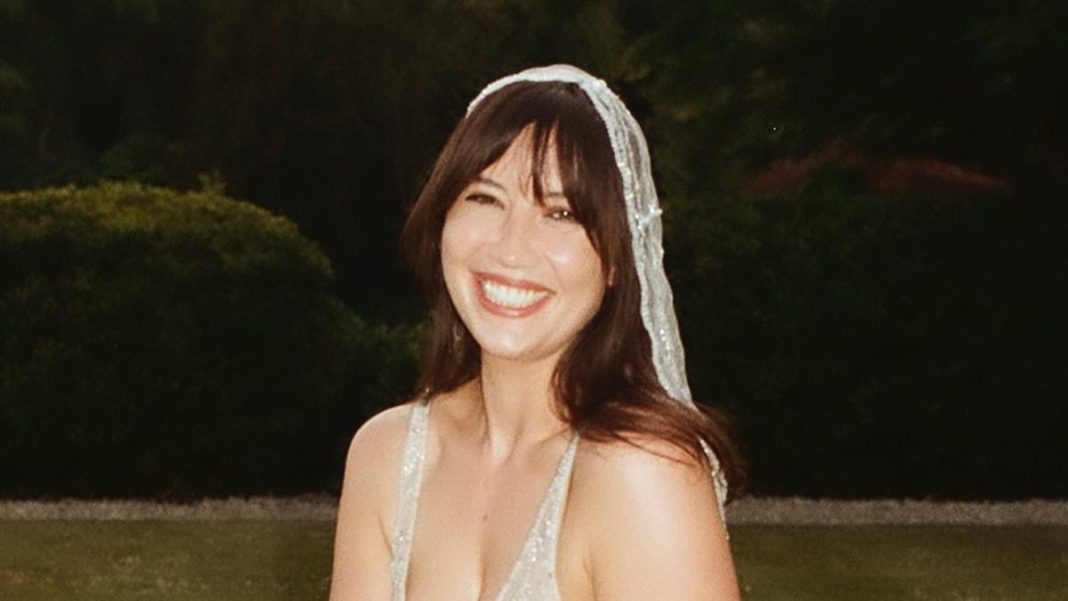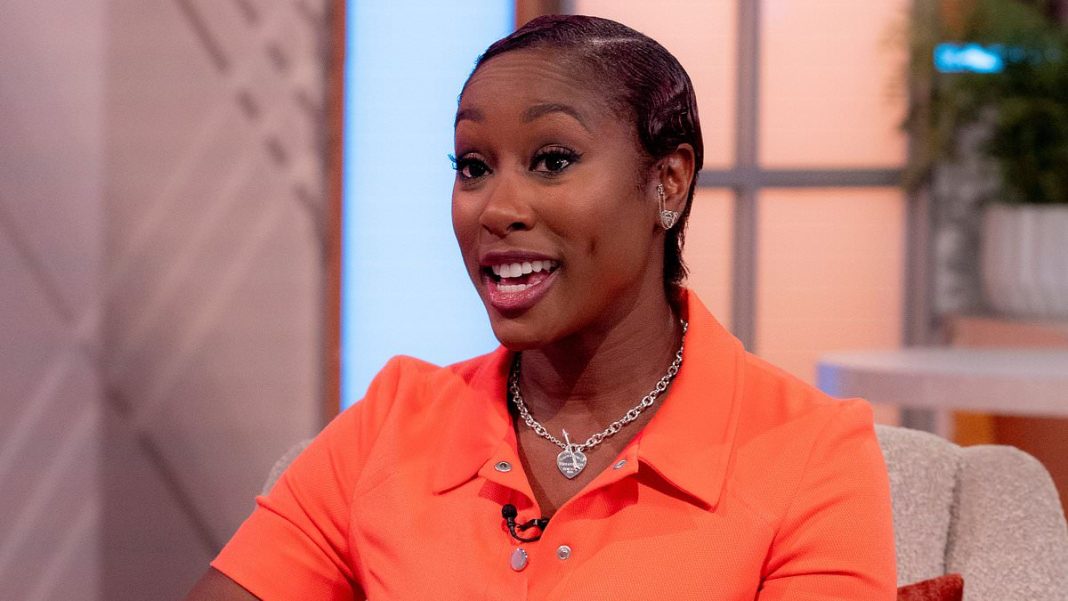A major report has warned that a popular sunscreen does not work, potentially leaving consumers at risk of skin cancer.
Consumer champion Which? safety tested 15 sun creams from Boots, Garnier and Nivea, as well as own-brand alternatives, and saw surprising results.
While a £2.99 supermarket-own sun protectant passed the stringent testing process, a £28 branded favourite failed to reach industry standards.
As a result, the consumer body warned, users may not be adequately protected from the sun’s UV rays, putting them at risk of deadly cancer.
Ultrasun Family SPF30, sold by some of the biggest UK high street retailers and costing £28, markets itself as being ‘perfect for the whole family’ and ‘especially suitable for children with sensitive skin’.
But the cream failed two separate tests that measured both its sun protection factor—or SPF—and ultraviolet (UV) protection.
To trial the creams, scientists applied a small amount on volunteers’ backs, before shining a lamp on the patch to simulate the sun’s rays.
The time it takes for the skin to become red was then measured.
In another test, scientists took a sample of the cream and spread it onto a glass plate to measure the absorption of UV radiation directly.
To pass, the sunscreen needed to provide at least one third of the claimed SPF.
SPF is measurement of the length of time you can be in the sun before you get burnt.
For example, a sunscreen with an SPF of 30 will take 30 times longer to damage your skin compared to no protection at all.
If a product failed to demonstrate the level of SPF it claimed to have on its first test, Which? repeated the test. If it passed the second time around, a third test was done.
Any product that failed either test twice overall, was labelled a ‘Don’t Buy’ by Which?.
Natalie Hitchins, Which?’s head of home products and services, warned shoppers to look out for these products, as they are not guaranteed to protect as expected.
‘It’s really concerning that widely available sunscreens could be putting families at risk by failing to offer the level of sun protection claimed on the packaging,’ she said.
‘Our results prove that there’s no need to splash out to keep you and your loved ones safe in the sun as we’ve found other cheap and reliable options.’
A spokesperson from Ultrasun told Which? that the brand was fully confident in its testing protocols and that these not only met, but surpass industry standards.
A spokeswoman said: ‘As an independent brand delivering very high UVB and UVA protection options for over 30 years, our detailed testing processes, independent and peer reviewed, continue to not only meet but surpass industry standards. Our chosen testing protocol is one of the strictest available.
‘Further detail and clarification from Which? on their testing protocols would also be helpful, particularly on how these resulted in two different results from the same sample. We conclusively support the results of our independent tests which found the Ultrasun Family SPF30 reached a UVB-SPF in vivo of 31.4 and a UVA-PF in vitro of 13.1 which equates to a 92% UVA absorbance. The UVA absorbance is calculated by the formula 1-(1/UVA-PF).’
Another sunscreen that made it on to this year’s Don’t Buy list was Morrisons Moisturising Sun Spray SPF30, priced £3.75 per bottle.
Morrisons says it’s looking closely at the data and working with its supplier to carry out additional independent testing.
Sunscreens that did pass Which?’s test included Aldi’s Lacura Sensitive Sun Lotion SPF50+, which costs just £2.99.
At just £1.50 per 100ml, it also earned a Which? Great Value badge.
Lidl’s Cien Sun Spray 30SPF High (£3.79) Boot’s Soltan Protect & Moisturise Suncare Spray SPF30 (£5.50) Nivea’s Sun Protect and Moisture Lotion SPF30 (£7.90) and Sainsbury’s Sun Protect Moisturising Lotion SPF30 (£5.50) all also passed the safety tests.
The damning report comes days after Kelsey Parker, 34, came under fire for admitting she doesn’t put sunscreen on her children.
The podcast host claimed daughter Aurelia, five, and son Bodhi, four, ‘don’t burn’ and that using sunscreen ’causes skin cancer’.
The children’s father, The Wanted star Tom Parker, tragically died from brain cancer in 2022.
Speaking in the latest episode of her Mum’s The Word! podcast about ‘the secret world of parenting’, Ms Parker confessed that she opts to keep her children out of the sun rather than using SPF to protect them.
She added that she makes ‘organic’ sunscreen out of beeswax for UV protection instead.
‘It’s bad for you–that sunscreen,’ she said. ‘My kids do not wear sun cream.’
‘The only thing that I may put on them is an organic sun cream.
‘My kids, we went on holiday, I never put sun cream on them and they do not burn.
‘I never used to wear sun cream, sun cream causes skin cancer’.
Since making the controversial remarks, the expectant mother has been blasted by listeners, who have accused her of spreading ‘dangerous misinformation.
One listener wrote on social media: ‘This is really dangerous spreading this information. Please research.’
‘This is insane and so unsafe. It’s so damaging, burning doesn’t indicate sun damage, it can literally kill them. Wow,’ a second said.
A third slammed the ‘dangerous advice’, while a fourth called the dismissal of conventional sun cream ‘irresponsible’.
Experts say there is no evidence that sunscreen causes cancer in humans.
Dr Bav Shergill a consultant dermatologist at the Queen Victoria Hospital, London and spokesperson for the British Association of Dermatologists, previously told MailOnline: ‘Sunscreens are a safe and effective way to protect your skin from burning and other forms of sun damage.
‘Millions of people have used sunscreen over many decades so we can be confident about their safety profile.’
Studies have long shown sun creams can contain both mineral and chemical UV filters.
Mineral UV filters mainly remain on the skin’s surface and form a physical barrier to deflect UV rays before they penetrate your skin.
Chemical UV filters, meanwhile, absorb UV light and convert it into heat energy.
As well as being used in sun creams, they may be added to other personal care products, such as moisturisers.
Some research on animals, mainly mice, has indicated many commonly used chemical UV filters in high quantities could be endocrine disrupting chemicals (EDCs) — chemicals that interfere with hormones — such as mimicking natural oestrogen found in our bodies.
Lifetime exposure to oestrogen is an established risk factor for cancers, including breast.
But no research on humans has backed this up.
Going without sunscreen, meanwhile, has been shown to directly raise the risk of developing skin cancer.
Around 15,000 people in the UK are diagnosed with melanoma each year—the UK’s fifth most common cancer—with the incidence rate rising faster than any other common cancer.
A recent study from Cancer Research UK warned found that an alarming 87 per cent of melanoma cases, the equivalent of 17,100 in the UK each year, are caused by overexposure to ultraviolet radiation, either directly from the sun or sun beds—meaning they could be avoided.
This is because increased UV exposure can damage the DNA in skin cells, triggering mutations that become cancerous.
From here, the cancer can spread to the blood vessels beneath the skin, getting into the bloodstream and spreading throughout the body.
Last year, rates of the cancer reached a record high in the UK, with new diagnoses increasing by almost a third in just a decade, according to the charity.
According to the NHS website, people should apply suncream to avoid burning and use ‘at least factor 30’.
‘Sunburn increases your risk of skin cancer. Sunburn does not just happen on holiday. You can burn in the UK, even when it’s cloudy,’ the site reads.
The health service also recommends avoiding the sun when it is at its strongest, between the hours of 11am and 3pm from March to November, and to cover up with suitable clothing and sunglasses.






